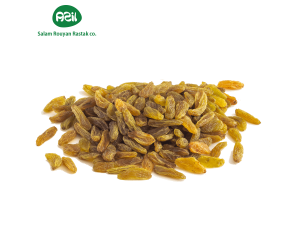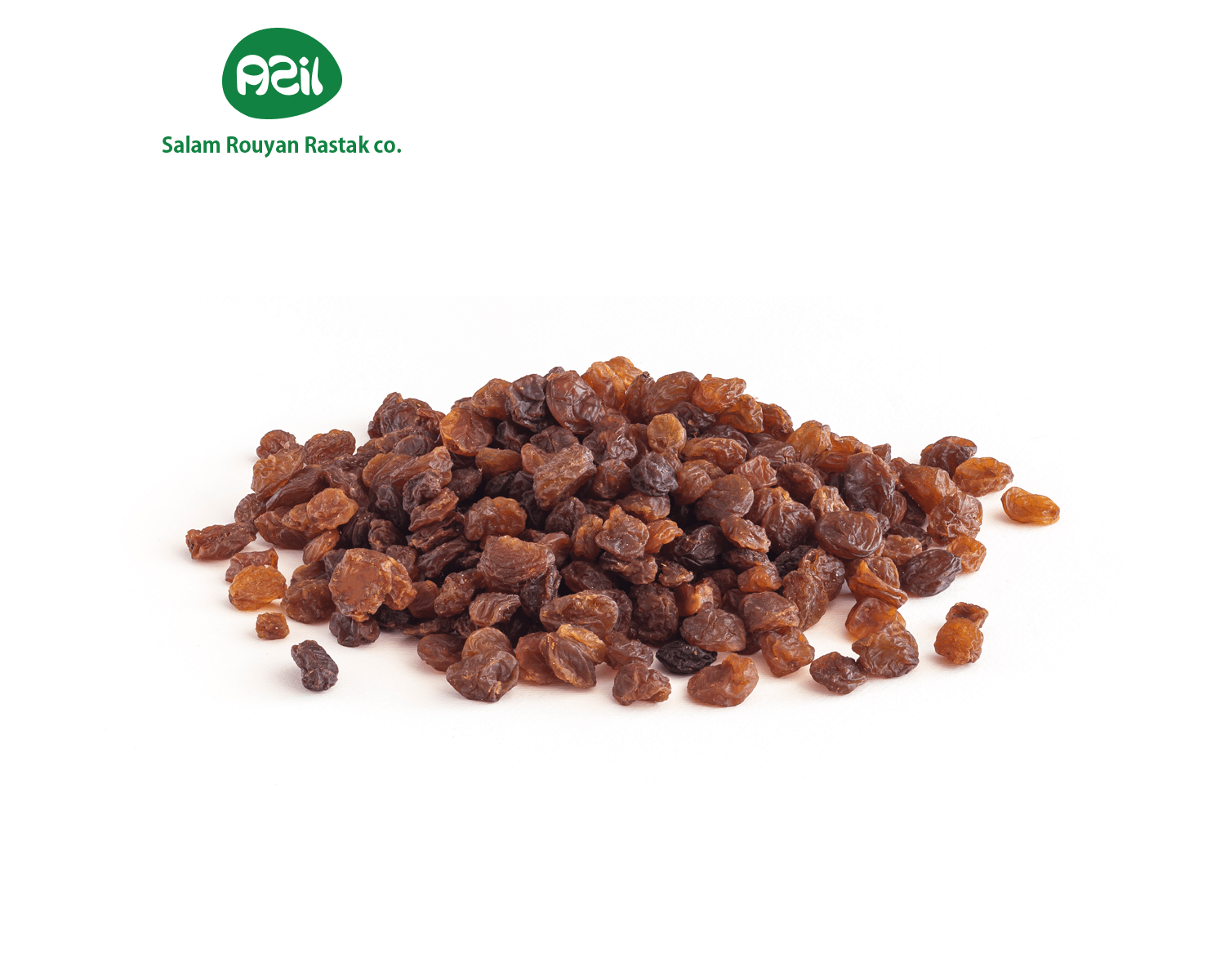Persian Raisins in Winter Poetry Salons
Persian raisins, with their sweet chewiness, inspire Iran’s winter afternoon poetry salons, fueling verses. Known as “keshmesh,” these dried fruits shine at 03:33 PM +04 on November 03, 2025. For example, poets share them during cozy indoor readings. This article explores how Persian raisins enhance winter afternoon poetry salon traditions, their cultural significance, and their health benefits. We’ll also dive into their cultivation, preparation, and global appeal. As exporters of saffron, nuts, and more, we share Iran’s finest keshmesh too. So, discover why these raisins are a salon treasure, how they’re used in Persian winter days, and why they’re cherished worldwide. Join us to explore this chewy gem and see what makes it a Persian seasonal essential this afternoon!
Introduction

Azil Organic Green Raisins
Persian raisins bring sweet chewiness to Iran’s winter afternoon poetry salons, fueling verses at 03:33 PM +04 on November 03, 2025. Iranians call these dried fruits “keshmesh,” produced in regions like Malayer and Takestan, and they shine when poets share them during cozy indoor readings. This chewy gem adds a thoughtful touch to the cold season. We export saffron, nuts, and dates, but this isn’t just about trade—it’s about their role in cultural expression. Therefore, this article explores how Persian raisins enhance winter afternoon poetry salon traditions, their cultural significance, and their health benefits. Let’s uncover this lyrical practice!
Persian Raisins in Poetry Salon Snacks
In Persian culture, participants use Persian raisins as snacks during winter afternoon poetry salons. They often nibble keshmesh to stay inspired between lines. For instance, many place this chewy gem in small dishes for quiet enjoyment. Also, they pair raisins with tea to complement the afternoon’s ambiance. This choice brings focus, so Persian raisins are a salon favorite.
Keshmesh in Winter Afternoon Poetry Salon Treats
Beyond snacks, keshmesh plays a key role in Persian winter afternoon poetry salon treats. Poets mix Persian raisins into sweet breads for a creative break. They also blend this chewy gem with nuts for a balanced mix. Another idea involves soaking raisins in rosewater for a fragrant treat. These offerings often delight attendees, showcasing seasonal comfort. As a result, this chewy gem enhances salon moments across Iran.
How Farmers Cultivate This Chewy Gem
Farmers carefully cultivate this chewy gem to ensure it’s ready for winter use. The process starts with grapevines fruiting in summer, so raisins dry by early autumn. They tend the vines in Malayer with sunlight to enhance keshmesh flavor. Then, they harvest grapes and sun-dry them for concentration. Finally, they sort the raisins to preserve quality for salons. This method keeps Persian raisins plump for gatherings throughout Iran.
Preparing Persian Raisins for Poetry Salons
Communities prepare Persian raisins to shine in winter afternoon poetry salons. For example, they rinse keshmesh to clean before serving. They also soak this chewy gem to soften it for recipes. Another method involves mixing raisins with saffron for a special blend. Some even pack keshmesh in elegant containers to maintain freshness. Because of these preparations, this chewy gem elevates every salon moment.
Health Benefits of This Chewy Gem
This chewy gem offers health benefits that suit winter afternoon poetry salon participants. Persian raisins provide natural sugars, boosting energy for long readings. They also contain iron, supporting mental clarity during gatherings. Moreover, their fiber aids digestion, a relief after snacking, per studies. Their antioxidants protect against winter effects, enhancing wellness. Therefore, enjoying keshmesh in salons means adding health to every verse.
Cultural Significance of Keshmesh in Poetry Salons
In Iran, keshmesh holds deep cultural significance in winter afternoon poetry salon traditions. Using Persian raisins symbolizes reflection, a value tied to seasonal introspection. Ancient customs mention this chewy gem in literary gatherings to foster creativity. Also, keshmesh often appears in salon snacks, representing sweetness. In urban areas, these raisins signify artistic community during winter. Consequently, this chewy gem weaves tradition into Iran’s salon customs.
Raisins and Iran’s Winter Afternoon Poetry Heritage
Iran’s winter afternoon poetry heritage thrives with this chewy gem. Farmers in Malayer produce Persian raisins, supporting poets who feature them in salons. Since they’re a seasonal delight, using keshmesh in readings shows cultural pride. Markets buzz with raisin sales before winter, delighting poets at 03:33 PM +04 on November 03, 2025. We export saffron, nuts, and these treasures, connecting them to Persian heritage. Thus, this chewy gem remains a cornerstone of Iran’s salon traditions.
Global Appeal of Persian Raisins
Around the world, people embrace this chewy gem in their own winter afternoon poetry salons. Its sweet taste makes it a favorite for global poets seeking inspiration. For example, European readings use Persian raisins in literary snacks, inspired by Iranian customs. Also, global markets sell keshmesh for salon treats, spreading its charm. In Asia, people include these raisins in winter verse events. Iran shares this chewy gem worldwide, so its salon appeal grows.
Challenges with Using These Fruits
Using these fruits for winter afternoon poetry salons can face hurdles. Cold in Malayer storage areas, for instance, affects keshmesh quality, limiting supply for events. Mold during drying sometimes impacts freshness. Additionally, preparing Persian raisins for salons takes care, making it labor-intensive. However, Iran ensures these fruits remain available for tradition. This effort keeps the heritage alive despite challenges.
Opportunities to Share Salon Keshmesh
The future offers chances to expand these salon traditions. This chewy gem in poetry kits could, for example, become a global trend for writers. Creating keshmesh-based snack blends for international markets is another idea. Furthermore, poets worldwide could buy these raisins online for their winter afternoons, extending their reach. We’re committed to sharing these treasures for global artistry. So, these opportunities ensure this chewy gem has a poetic future ahead.
How to Choose the Best Persian Raisins
Looking for the best keshmesh for your winter afternoon poetry salons? Check for a plump texture—they shouldn’t feel dry, ensuring juiciness. Also, look for golden-brown hues, a sign of quality. Taste them for a sweet flavor, perfect for snacks. Source them from us because we guarantee the best keshmesh for your needs. This way, you’ll have top-quality raisins for every salon.
Raisins in Global Winter Afternoon Poetry Practices
Globally, this chewy gem enhances winter afternoon poetry salon practices in unique ways. In Iran, for instance, poets use keshmesh in gatherings at 03:33 PM +04 on November 03, 2025. European salons feature these fruits in literary breaks. In Asia, people enjoy this chewy gem during winter verse afternoons, delighting attendees. You can also mix keshmesh into warm drinks for a salon boost. These practices show how Persian raisins enrich global poetry.
The Future of This Chewy Gem in Poetry Salons
Looking ahead, this chewy gem will shine in winter afternoon poetry salons worldwide. Sustainable drying can manage cold, so supplies remain steady for events. Also, people increasingly seek natural snacks like keshmesh for their gatherings. We’re ready to share this awesome raisin, along with saffron and more, for global traditions. Therefore, this treasure will remain a salon favorite for years to come.
Conclusion
This chewy gem blends sweet flavor with the inspiration of winter afternoon poetry salons in Iran and beyond. Its taste, cultural role, and health benefits make it beloved in seasonal verse. If you’re hosting a salon, keshmesh invites you to add a Persian touch. We deliver Iran’s best with care, so you can trust our quality. Want to try it? Contact us to get this chewy gem for your next event at 03:33 PM +04 on November 03, 2025. Let’s share this lyrical delight together!

